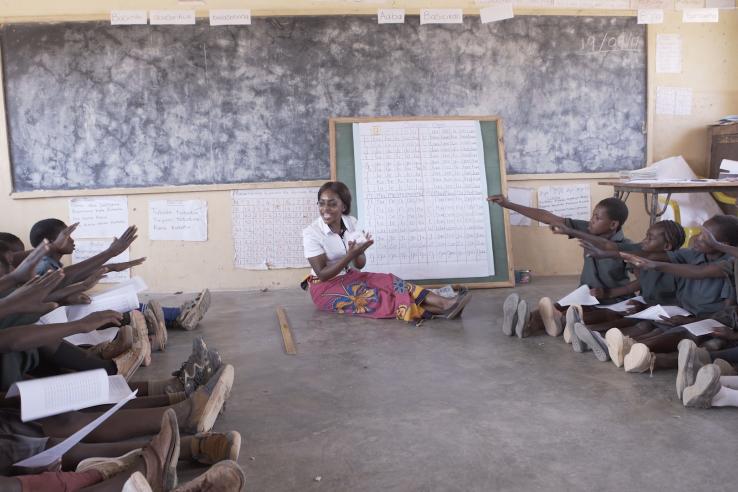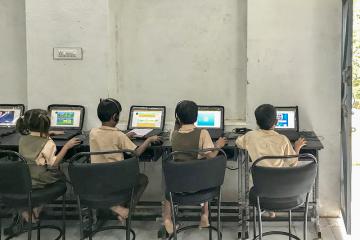
Launching the FLN Hub: A library of resources to support education actors improve learning outcomes

Pre-pandemic, almost 400 million primary school-aged children lacked basic literacy skills, with girls at higher risk of losing the skills they gained after leaving school. School closures, which affected over one billion children during the pandemic, have exacerbated low learning and inequity in education systems worldwide.
In response, UNICEF, in partnership with J-PAL, Pratham, and Delivery Associates, launched the FLN Initiative with the goal of helping children achieve foundational literacy and numeracy (FLN) by age 10. Bolstering children’s literacy and numeracy skills will require assessing child knowledge, setting short-term educational goals, and building on evidence-based approaches to FLN, like Pratham’s Teaching at the Right Level approach.
In meeting these goals, this FLN Initiative aims to both improve children’s short-term FLN outcomes and strengthen countries’ long-term education systems through engagement with policymakers, educators, learners, and caregivers.
With the support of The World Bank Group and Global Partnership for Education (GPE), the FLN Initiative launched the FLN hub, a dedicated resource website anchored by evidence generated and synthesized by J-PAL, as well as practical resources developed by Pratham, Delivery Associates, and other partners. The hub contains resources around six focus areas:
- Early childhood education
- Formative assessments
- Teaching at the Right level
- Language of instruction
- Parental engagement
- Digital learning.
The hub also includes an interactive evidence menu to identify relevant approaches for their context and a training tool designed to help education ministries strengthen their capacity to effectively implement evidence-based FLN interventions. The evidence menu draws on J-PAL’s body of randomized evaluation research, as well as a joint effort by the World Bank, FCDO, and Building Evidence in Education (BE2), to synthesize “good buys” in education through the Global Education Evidence Advisory Panel.
Within the evidence menu, evidence is categorized by the type of barrier faced (including education supply, demand, and quality); whether the intervention is focused on learners, parents, leaders, or teachers; the intervention’s cost-effectiveness; and the strength of evidence on the intervention’s efficacy. This information will allow policymakers to access evidence suited to overcoming the specific barriers faced in their context. In addition, to provide information on design, context, and implementation considerations, J-PAL and Delivery Associates developed implementation guides on evidence-based computer-assisted learning and parental engagement approaches and Pratham is developing a forthcoming guide on its Teaching at the Right Level approach.
Beyond the hub, the FLN Initiative hosted a multi-module online course called the FLN Academy from June 2021 to August 2021, which drew over 700 participants from 75 countries. The course was geared to government and civil society officials, and it shared evidence to improve children’s learning as well as guidance on effective policy implementation. Based on strong reception to the Academy, the FLN Initiative will continue to provide similar learning opportunities to practitioners.
We hope these resources will provide education actors with timely information that can help inform how to achieve FLN for all students. With ongoing support from The World Bank, GPE, UNESCO and broader FLN partners, the FLN hub will continue to provide a platform to strengthen collaborations across all FLN stakeholders, with the hope of expanding learning opportunities for all children.



